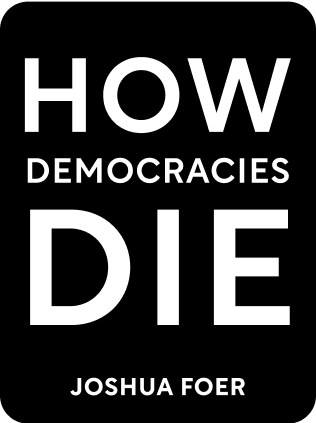

This article is an excerpt from the Shortform book guide to "How Democracies Die" by Steven Levitsky and Daniel Ziblatt. Shortform has the world's best summaries and analyses of books you should be reading.
Like this article? Sign up for a free trial here .
How does changing a constitution work? Why is constitutional hardball a tactic of authoritarians?
Changing a constitution is often used by authoritarians as a way to maximize their influence and gain more personal power. There are several examples in history of authoritarians using constitutional hardball to get their way.
Read more about changing a constitution and what it means.
Changing a Constitution: Constitutional Hardball
The problems of gridlock and divided government are closely related to the concept of constitutional hardball. Constitutional hardball is when politicians abandon restraint and abuse their institutional prerogatives to maximize their advantage over their opponents. The executive, legislative, and judicial branches of government are all capable of violating norms by playing constitutional hardball. Let’s explore some examples of each.
Juan Perón: Executive Hardball
For an example of changing a constitution with executive constitutional hardball, we can return to Juan Perón’s Argentina. When we explored the capture of referees in the last chapter, we looked briefly at Perón’s court-packing scheme. If you’ll recall, he impeached conservative supreme court justices and replaced them with loyalists who would dutifully go along with his agenda.
He did so under the cover of a clause in the constitution authorizing the president to begin impeachment proceedings against justices for “malfeasance.” But the clause gave no clear instructions on how such a power was meant to be exercised or what oversight the president was meant to be subject to in this course of action. This vague language was a blind spot in the constitution that enabled Perón to abuse his control of the executive branch to punish his enemies.
Congress vs. President Lugo: Legislative Hardball in Paraguay
In 2012, the Paraguayan congress abused its constitutional powers of impeachment to impeach and remove President Fernando Lugo from office. They did so on spurious and partisan grounds—there had recently been large-scale riots and unrest in the country that the government had failed to quell, and the congress used them as a justification to remove Lugo, claiming “poor performance” on his part. Similar riots, of course, had also occurred under other administrations, without congress acting in such a way.
Lugo was, by all accounts, not a good or effective president, but his actions clearly did not meet the normal standards of impeachment. His show trial and subsequent removal, while technically allowed under the constitution (because the congress determines what the rules and standards for impeachment are) were clear violations of institutional forbearance.
Maduro’s Supreme Court: Judicial Hardball
We can return to Venezuela for an example of judicial hardball for changing a constitution. There, supreme court justices hand-picked by President Nicolás Maduro (who succeeded Hugo Chávez after the latter’s death in 2013) made it standard practice to declare all laws passed by the opposition party-dominated congress unconstitutional.
The judicial branch, of course, does have the power to exercise judicial review and invalidate laws that are clearly in breach of the constitution. But to apply this power in such a blatantly partisan manner constitutes a wild overreach of judicial authority and a clear abandonment of institutional forbearance.

———End of Preview———
Like what you just read? Read the rest of the world's best book summary and analysis of Steven Levitsky and Daniel Ziblatt's "How Democracies Die" at Shortform .
Here's what you'll find in our full How Democracies Die summary :
- How shared norms are essential for preserving democracy
- Why the Trump presidency threatened those shared norms
- Why democracy goes beyond individual leaders and parties and must be a shared enterprise among committed individuals






